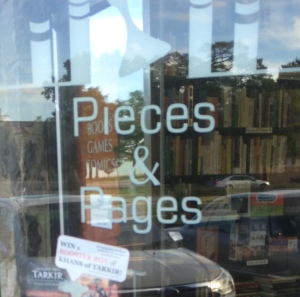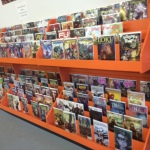They say timing is everything. I agree.
So is letting go. That’s why I say to whomever “they” are that I’m extending my 10-hour book publishing challenge to December 18.
Why? First of all, it’s my blog challenge and I set the rules. (And my blog editors said it was okay.)
Second, I felt overwhelmed by things crashing into each other. Fundraising to dance in THON clashed with my seeking financial support for my Indiegogo campaign. The extra shifts for my part-time job slammed into prep work time for my Zentangle classes.
The last and most important time-suck of the month was me. I watched my Major Crimes DVDs over and over, obsessing because the new season starts next week. I wandered aimlessly through the playgrounds of Instagram. I tell myself that writing haiku through Ku and Notegraphy phone apps was a productive use of my time, but, really, that was another distraction.
I sound just like that person I wrote about last month.
Now, I did catch a cold. I was not so sick that wiggling my toes hurt, but I sniffled enough where leaning over my keyboard caused my nose to drip and drool on the keyboard. Any precious time I could snort the mucus back, I spent that time on my memoir.
Outside of that, I chose to be careless with my time, and now I’m here apologizing and making excuses. Why did I not value my time and talent?
I thought about it. I figured I’d have more success collecting donations for THON when I wasn’t asking people to buy my book. Rather than compete with holiday parties and family events, it made more sense to me to plan a marketing strategy for my Zentangle classes in the New Year when I wasn’t marketing my memoir and my Indiegogo crowdfunding campaign. At some point, the money from working extra hours at my job was not worth the time that could have been spent writing my memoir.
Are you seeing the theme here? Believe it or not, I didn’t at first. When you think about your responsibilities–I mean, really think about them–listing your life out like chapter outlines will identify the events that really matter to you. Here I’ve moved on to the next step, the follow-through that freezes many would-be writers: I’m letting go of extraneous tasks and planning. Not everyone does that. They usually give up.
I didn’t give up; I refocused. That’s not an excuse, although we may see it as such. If we do, then we fail, fizzle and flop. I didn’t think I needed to prioritize, but I couldn’t identify what really mattered until then. Of all the items on my list, my memoir was most important to me. Knowing that, I could push everything else aside.
All of this brings us back to the postponed eBook challenge. Yes, some readers who were expecting Part Two this month may be disappointed, but remember, I’m rescheduling it, not giving up. Think of it as…increased anticipation.
How has this shift in priorities helped my memoir time? With the extra time, I was open to rearrange and commit to the Chapter order. After doing that, the process flowed better. Both self-editing and finding an editor takes longer than I thought. Re-launching the Indiegogo campaign was frustrating and disappointing, but the descriptions and perks are now more enticing. I’ve explored marketing ideas and am planning specific actions of specific dates. For other ideas, I’m letting those all percolate.
Did you make a writing promise to yourself and were unsuccessful? No one can change what happened yesterday. It’s been done, but that doesn’t mean you’re a failure. How do we start fresh without feeling guilty?
First, forgive yourself. We’re all human, but we can do simple, little things. What should you consider when planning your writing time, or anything else, really? I can offer some advice.
1. Don’t rely on To-Do lists. From my experience, they appear organized but are often overwhelming, and thus counterproductive.
2. Don’t say yes to things just because that time isn’t blocked off on your calendar.
3. Break up your lunch hour by standing up and physically moving away from your desk. If that’s the time you squeeze in exercise, give yourself permission to write during one or two of those times. Take your laptop into an empty conference room or even your car to write away from distractions. No laptop? Use paper and a pen, as we dinosaurs did in the pre-digital age.
4. Family and relationship time is important so look for ways to balance the two. I can write in the living room on the couch next to my husband as we watch episodes of The Big Bang Theory.
No matter what you do, the key is making the time.
Did I say any of this would be easy? If it was, we’d be doing it all and there would be no need for me to write this post. We’d all be published authors with worldwide readership.
We know self publishing is possible. I can’t promise readers will love your stories, but if you don’t publish, how will people be able to read them? If you have already completed the 10-Hour Challenge and published a book, leave the link information below in the comments. If not, then you have another 30 days. Timing is everything.
Ready? Set. Go!




